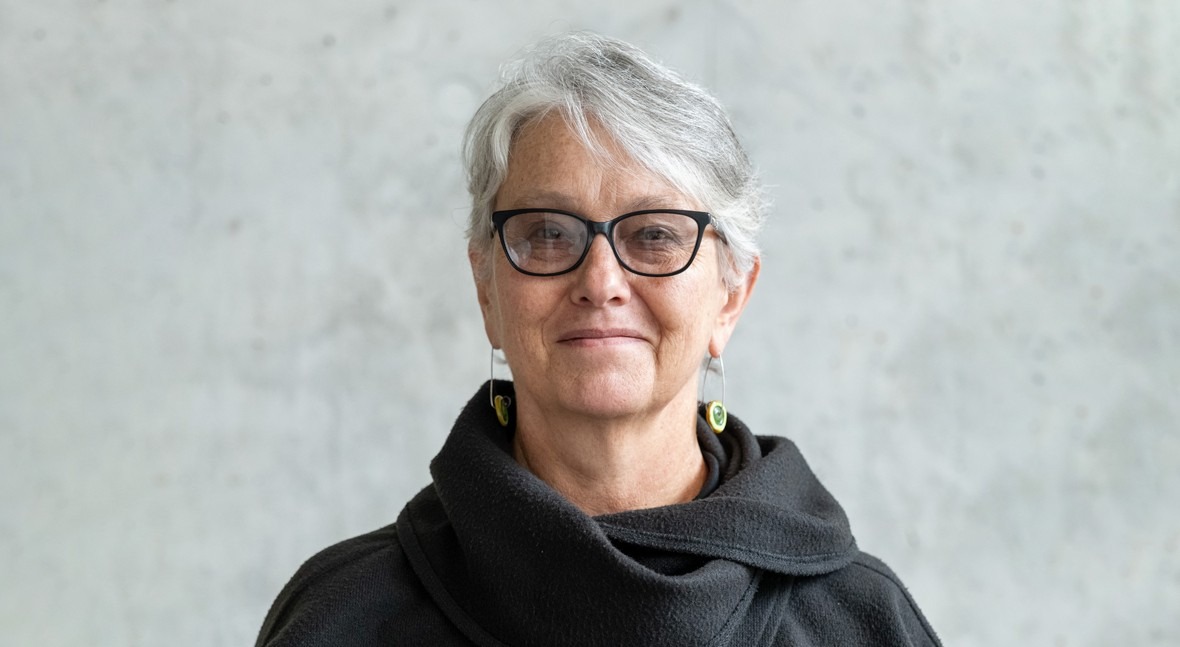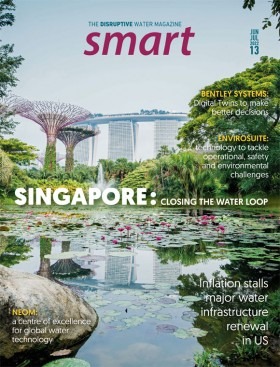"We work with partners globally to make sure integrity is on the agenda as an avenue for change"

The Water Integrity Network (WIN) advocates for measures to strengthen governance processes, manage integrity risks, and keep corruption out, as a key requirement to achieve the global development agenda. WIN’s Executive Director Barbara Schreiner has an extensive background in the water sector focusing on natural resource management, poverty and gender issues. In this conversation she delves into the role of water integrity in the drive for good governance in the water sector.
Can you briefly tell us about your career path and your current role at the Water Integrity Network?
I have been working in the water and natural resource management sector for over 20 years, in the public, private, and non-profit sectors, mostly in my native South Africa. In all my roles, for example as a ministerial advisor or as director of a consultancy, I felt it crucial to focus on good governance and addressing poverty and inequality, including gender-based and other forms of social and economic marginalisation. We can’t shy away from the tricky questions and we need to look with honesty at our work and challenges. I believe the water and sanitation sectors can be managed better with integrity, and they must. That’s what I’m pushing for now as Executive Director of WIN, with a view to realising the human rights to water and sanitation.
The Water Integrity Network supports individuals, organizations and governments promoting water integrity
Water integrity refers to honest, transparent, accountable, and inclusive decision-making by water stakeholders, aiming for equity and sustainability in water management. What trends have you seen in terms of water integrity and corruption in recent years?
For a long time, water integrity was mostly used to refer to water quality. Corruption was a taboo and good governance was another catchphrase without much backing to it. Now, it’s different. We see willingness in the sector to discuss systematic issues and there is growing realisation that water and sanitation sector issues are not just technical; that we must look at governance and can’t just sweep corruption and integrity failures under the rug. It’s no longer anomalous to see accountability mentioned, discussed and supported even if there is still a lot we can do. This is a significant and exciting change for us. We also now see new risks coming in to the picture with the climate crisis, along with a sense of urgency we didn’t previously feel as strongly.
For a long time, water integrity was mostly used to refer to water quality. Corruption was a taboo and good governance was a catchphrase
At the same time, there have also been some advances in our understanding of corruption and integrity failures and how they affect water and sanitation. It’s clearer how we can act and how everyone has a role to play.
Corruption and poor integrity don’t grease the wheels of progress, they pull us back: leaving inappropriate infrastructure behind, pumps that break too soon, failed water supply systems, people without adequate water who risk their lives and livelihoods. But we have goals to reach. We can’t let integrity issues derail progress on sustainable development and climate resilience or, more importantly, the basic human right to water and sanitation.
Can you tell us about the approach of the Water Integrity Network to improve water sector performance?
What we do is work with partners globally to make sure integrity is on the agenda as an avenue for change. We raise awareness based on research and the inputs of our network. We then work with sector stakeholders to understand and mitigate practical integrity risks that affect their work at different levels. We’re not here to point fingers, we’re here to support efforts to minimise risk and encourage change. There are no one-size-fits-all solutions. For example, a utility might use integrity tools as part of non-revenue water reduction programme, minimising possibilities for accepting bribes in exchange for unregistered connections, making it harder to manipulate records, engaging with communities to better target needs, or ensuring that no conflicts of interest guide who pays and who doesn’t.
Do water integrity failures differ depending on the region of the world or other factors such as country income level?
Corruption and integrity failures happen everywhere. Irregular procurement processes, hiring an unqualified friend (for example), deprioritising service upgrades to marginalised areas, even sextortion – where sexual favours are the currency of a bribe, are all integrity failures that could and do happen anywhere. Ultimately, they affect service quality, drain resources, and break down trust. In some places, corruption may just be more open or systematic. In some places, it may be intricate and harder to detect. In some places there is impunity for corruption, making it less risky to engage in.

What characteristics of water and sanitation services contribute to their vulnerability to mismanagement, and how can it be addressed?
Water is a scarce resource, trending towards a natural monopoly, requiring complex technical management and high investment to deliver services. It has many uses and values meaning its governance is generally complex and dispersed across ministries, levels, or constituencies. There are many intermediaries and modalities for service delivery, often informal or unregulated, especially for sanitation, and especially in marginalised areas. These are some factors that make water and sanitation services vulnerable and we’re unlikely to eliminate them. What we can do is make corruption harder to engage in, clarify roles and responsibilities, change organisational character to one that is built around integrity and intolerance of corruption and promote open accountability mechanisms.
I’ll give a couple examples. By recording meter readings with pens instead of pencils, the risk of manipulating records is reduced; by publishing tariffs clearly the risk that service is discretionary is reduced. These are simple cases, but they show practical steps can be taken.
Generally, we support collaborative approaches which have multiple components for Transparency, Accountability, Participation, and Anti-corruption. In Kenya, for example, our partners are working with the national water services regulator and the Water Sector Trust Fund to apply integrity management tools for service in rural or remote areas where supply systems are generally small. Big efforts were put into clarifying legal management models and responsibilities and also in opening up communication channels between local government and water committees. These have made a difference for service delivery already. With more measures to engage with communities, or even make sure there is a bank account to collect payments rather than a pocket, service is more transparent and accountable. Each step is important.
"Corruption and integrity failures happen everywhere; ultimately, they affect service quality, drain resources, and break down trust"
Can you comment on integrity issues related to delivery of water services in informal settlements or other excluded communities?
We have looked at integrity failures in informal settlements more closely through research in Kenya and South Africa with SERI, as well as in our latest Water Integrity Global Outlook. Many people living in informal settlements pay more for water than wealthier neighbours. Wealthier neighbourhoods receive disproportionately more resources or subsidies for service development.
"We support collaborative approaches that have multiple components for Transparency, Accountability, Participation, and Anti-corruption"
Something obviously isn’t right, and this doesn’t just concern a few people. Almost half of the people living in cities in Africa live in informal settings, close to a third of city residents in Asia.
What we see is that prejudice or failures in the legal framework, lack of engagement with residents, as well as gaps in statistics (sometimes intentional, sometimes not) may lead to total or partial exclusion of informal settlements from basic service provision. And the vacuum left behind by inaction to ensure service is a playground for corrupt practices.
We’re now working with partners to better understand specific integrity risks for service delivery in informal settlements and come up with integrity tools for utilities and regulators to address them. We’re interviewing more stakeholders and are eager for contributions or collaboration. We welcome your readers to join in the discussion and find solutions!




